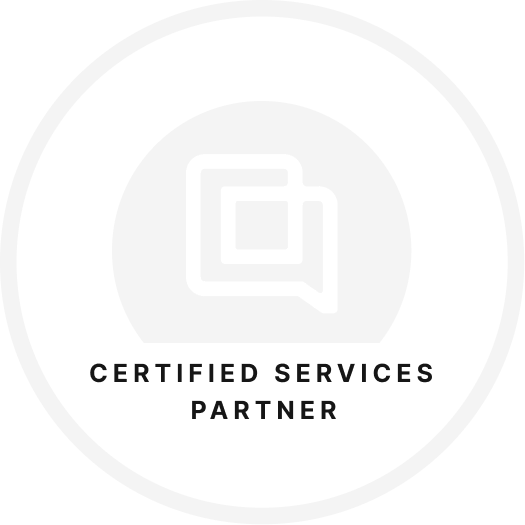Imagine losing a customer simply because your customer service team seems more like robots than problem-solvers. Your supposed ‘advantage’ becomes a cost center that returns minimal ROI if your team fails to meet customer expectations. Remember, 96% of customers will leave if they’re unhappy with support.
How do you explain that?
Sometimes, it all comes down to your customer service training. Are you sure your training produces agents who turn support interactions into loyalty-building moments? Or are your agents totally disconnected from real-world scenarios?
Together, let’s define the right components and strategies of the training program that will help your team develop the skills that a CS rep must have.
Why customer service training matters

Your business might offer the best products or services on the market, but one bad customer service can erase all of that. It’s easy to underestimate the value until you see the numbers. Think about these statistics:
- 83% of American consumers consider good customer service the most important factor in brand loyalty.
- Poor customer service experience drives 32% of brand abandonment.
- Globally, organizations are putting $3.7 trillion annually at risk due to bad customer experiences.
So, here’s a key takeaway—customer service directly impacts customer satisfaction, loyalty, and revenue. Proper customer service representative training is non-negotiable.
Benefits of a well-trained customer service team

A well-trained team not only resolves issues but also fosters customer loyalty by creating great customer service and positive interactions.
They retain customers
If a customer with a time-sensitive issue reaches out and a CS representative lacks the knowledge to resolve it quickly, would that customer become loyal? Only an empowered team with strong customer service skills and problem-solving techniques helps turn challenges into opportunities so customers are retained and satisfied.
They minimize churn
A well-trained customer service team can reduce churn by addressing customer concerns efficiently. Training prepares your team to address any problems effectively. Next time a customer requests billing assistance and your agent responds promptly, explains the issue clearly, and resolves it quickly, that customer is less likely to cancel their subscription.
They help improve team morale and confidence
Customer service skills training helps your team feel more confident in their ability to resolve issues with care. Your team will then be more confident in their ability to resolve issues with care. The good result? Not only does their ability to de-escalate situations improve, but their belief in the work they’re doing grows—increased team morale and reduced turnover.
They enhance reputation and customer satisfaction
Single negative experience can tarnish your reputation. Hello social media, review sites, and word-of-mouth where customer feedback spread faster than ever. A well-trained customer service team equips the CS team to respond appropriately to inquiries—delivering exceptional customer service that boosts your company’s reputation.
They strengthen problem-solving capabilities
Say a customer calls in to report a glitch in your SaaS payment processing. A trained customer service agent can guide that customer through steps like verifying the account information to contacting technical support. A comprehensive customer service training program ensures your team is adept at resolving issues.
They deliver higher revenue
A well-trained customer service team recognizes opportunities for upselling and cross-selling, delivering great customer service that drives higher revenue and ROI. These agents know that satisfied customers buy more, and sometimes, often.
4 key components of effective customer service training

So, when developing the best customer service training programs, you should have the following components:
1. Product and service knowledge
Does your team understand your offerings inside and out? A knowledgeable team equates confidence and credibility. Good customer service training for employees includes regular workshops, hands-on product experience, and a knowledge base to ensure the team stays updated on products, services, and company policies.
Now, selling and even identifying upsell and cross-sell opportunities are easy! A customer service course on product knowledge can significantly enhance your team’s confidence and credibility.
2. Communication skills
Most customer service interactions fail not because of technical limitations, but because of communication breakdowns. Without strong communication skills like active listening and empathy, customer service reps can easily misinterpret customer concerns or fail to de-escalate tense situations. Good communication goes beyond words. Empathy and active listening are among the most important customer service skills that can prevent communication breakdowns.
Pro tips:
- Learn to modulate tone based on customer mood
- Recognize and manage personal emotions
- Practice emotional intelligence
3. Problem-solving techniques
In customer service, problems are inevitable. Customers will face issues with products, services, or processes, and the way your team handles these challenges determines whether they walk away satisfied or frustrated. This is where problem-solving techniques come into play.
By equipping customer service agents with problem-solving techniques, you enable them to find solutions without needing to escalate issues. Customer service skills training should include problem-solving techniques to empower agents to find solutions independently.
Practical tip: Teach your team to follow a structured problem-solving approach: listen, empathize, assess, and resolve.
4. Handling challenging situations
One of the key components of effective customer service training is preparing your team to handle challenging or irate customers. Why? Because difficult interactions are inevitable. How your team responds during these situations can make or break a customer’s perception of your company. Training your team to handle challenging situations is crucial to deliver exceptional customer service.
Key techniques for dealing with difficult customers:
- Offer workshops on conflict resolution and provide scripts for common scenarios, while encouraging flexibility in unique cases.
- Focus on solutions, not the problem
- After resolving the issue, follow up
Strategies for delivering effective customer service training programs
Now that we’ve defined the key components, let’s look at strategies to implement them effectively:
Conduct role-playing
Theoretical knowledge alone is rarely enough to prepare your team for real-world scenarios. Customer service agents need to practice their skills in a realistic environment. Imagine if a new hire understands company policies and products perfectly but freezes when confronted with an irate customer. So, role-play. Do a hands-on training strategy where your team can act out customer interactions in a controlled setting. They can make mistakes, and refine their approach without consequences. Role-playing is a key component of many customer service training courses.
Pair up employees to take turns as the agent and the customer. After the role-play, observers can provide constructive feedback on areas like tone, empathy, or problem-resolution techniques.
Immerse in simulations
Lectures or static e-learning modules? These free customer service training materials PDFs are good until your reps face high-pressure situations. Simulations are much like role-playing but now you use technology (customer service training videos) or software to create realistic customer interactions.
Would you trust a pilot who only studied a manual to fly a plane? The same logic applies here—simulations take customer service training to new heights by preparing your team for real-world success. Many free customer service courses offer simulations to prepare your team for real-world scenarios.
Introducing new tools like customer relationship management (CRM) systems or software platforms can overwhelm employees without the right training. Simulations make this process seamless by mimicking real customer interactions within these systems.
Provide regular feedback and coaching
Customer service is dynamic—every interaction is unique. Regular feedback helps agents adapt to these changes. When feedback is part of your agent’s routine, it makes them more accountable. Your CS team is aware that their performance is consistently monitored—not to catch them failing, but to help them succeed. Regular feedback and coaching are essential components of effective customer service skills training.
Case in point: If your agent struggles with upselling, you can coach him/her on identifying customer needs and recommending relevant products.
Offer mentorship programs
How do you ensure your team not only learns but thrives under the demands of customer service? Try personalized guidance by offering a mentorship program. Pair your less-experienced team members with seasoned agents.
A mentee can even role-play with their mentor so building skills is in a safe, supportive environment before applying them to actual customers. Mentorship programs are often included in customer service training courses to provide personalized guidance.
Make training interactive and fun
A passive, lecture-style online customer service training? That’s not very engaging. And if your training isn’t interactive or engaging, you’re investing time and money into a program that may fall short of its purpose. Just inject interactive and fun elements into your training program so your CS employees look forward to it—gamify the customer service training.
Turn your training into a game with points, rewards, and leaderboards. Create quizzes after each module where participants earn points for correct answers. Offer prizes like gift cards, team shout-outs, or extra break time for top performers.
Skill up to scale up customer service

Scaling customer service without scaling your team’s skills is just a short-sighted approach. Prepare your team with the best customer service training programs so inconsistent service, longer resolution times, and dissatisfied customers aren’t your thing at all.
Just don’t forget to cover the following customer service training ideas:
- product and service knowledge
- communication skills
- problem-solving techniques
- handling challenging situations
A robust customer service training program is essential for scaling up your service without compromising quality.
Scale up without overburdening your internal teams with LTVplus. We’re your outsourced solution so your customers receive top-notch service. Yes, our team is a perfect blend of expertise, technology, and human touch. Let us know how we can help you. Book a free call today.




